Importance Of Building Muscle After Bariatric Surgery
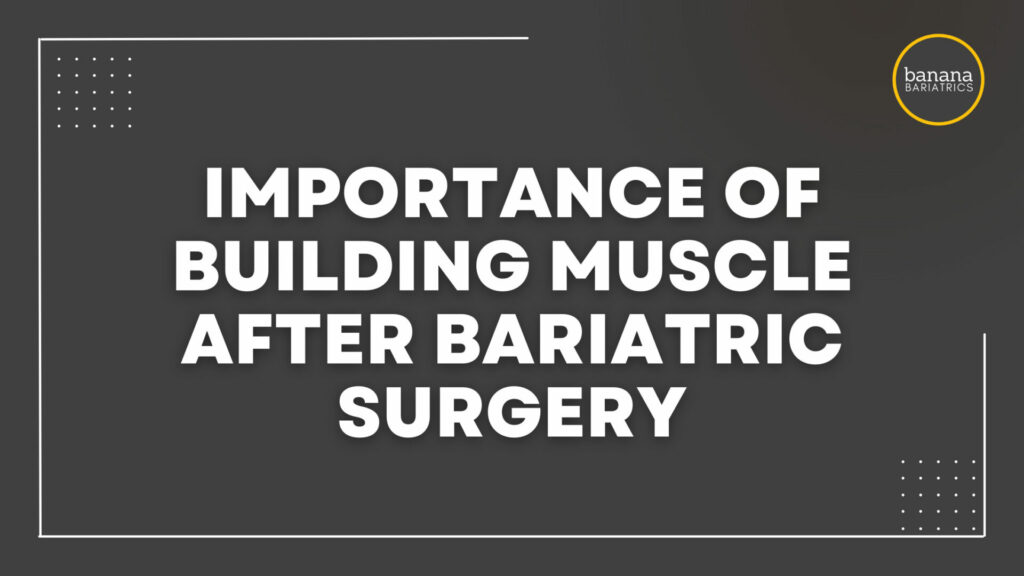
Maintaining muscle mass after surgery is a key component to helping you change your body composition, reduce co-morbidities, and to continue to lose weight for the long haul after surgery. The importance of building muscle after bariatric surgery cannot be emphasized enough. Having more muscle will help you increase your metabolism and predominantly burn fat for fuel. In this blog post, we are going to learn how to get started with building muscle, how to approach calories and protein intake to build and maintain muscle mass, and will offer you a full recorded interview with Kim Tirapelle (bariatric registered dietitian and exercise sports nutritionist) for specific examples of how to accomplish this in your daily diet.
Where To Start With Working Out And Building Muscle After Bariatric Surgery
When it comes to incorporating strength training into your daily routine, it is important to first look and see how much muscle mass you already have and where it is distributed on your body. A lot of clinics will use a body composition scale that can help break down how many pounds of your body weight are derived from muscle, and where muscle mass is distributed throughout your body.
The torso is the most common area where most initial muscle mass loss occurs- typically due to recovery and activity restrictions after surgery and the overall nature of having abdominal surgery and injury to this area.
It’s important to rotate through all muscle groups when exercising to strengthen your body comprehensively. You can do so by simply going on Google, YouTube, Pinterest, etc. to searching for “beginner strength training full body workout.” Or, you can break work out specific major muscle groups (ie: upper body, lower body, core/back, etc.) on specific days of the week in order to isolate and focus solely on these areas one at a time.
How To Nutritionally Support Gained Muscle Mass
Right after surgery, it can be challenging to nutritionally support the growth and maintenance of muscle mass when intake of food is reduced. This can be hard when intake of protein beyond soft solids is challenging to tolerate and/or hard to consume in larger portions. However, the further out from surgery you become, the more important it is to ensure you are eating enough protein to prevent muscle loss. To increase muscle, you need to increase your protein intake- ideally from nutrient dense foods. (Catch our full interview recording with Kim Tirapelle at the bottom of this blog post for specific ideas on protein rich snacks).
The first step in building muscle nutritionally is to look at how many calories you’re eating a day. Working with a bariatric registered dietitian can be very helpful in understanding how many calories, grams of protein, carbohydrates, and fats you’re eating and how to find the right ratios that work for you. From your baseline, you’ll need to slowly increase your intake to support the growth of muscle.
A slow and conservative increase of about 200 calories per day can be a good place to start. If you are a bariatric athlete, you may have to increase this more depending on the nature of the activity that you’re doing (ie: participating in a 10k, half marathon etc.). Building muscle after bariatric surgery will become easier when you can supply your body with additional fuel and protein.
The Role Of Protein In Building Muscle
Besides increasing calories, it is important to optimize the amount of protein you’re consuming. The recommended range for protein is 0.7-1g / pound based on your goal or maintenance weight (not your current weight). Your bariatric registered dietitian can help you calculate this amount for you. This is a generalized guideline which does not take into account patients with impaired kidney function. Therefore, please review the correct amount of protein intake you should be having with your surgical team to ensure it is a healthy amount when considering your other medical comorbidities.
In Summary
In order to sustain weight loss after surgery, it is important to incorporate strength training at least 3 days into your weekly routine. This helps improve body composition by predominantly burning fat (over muscle) while losing weight. Determine where your daily calories are at, and work with a bariatric registered dietitian to gradually increase calories and grams of protein until you reach around 0.7-1g of protein per lbs. of body weight (relative to your goal or maintenance weight). You’ll need less if you have impaired kidney function. Ensure you are working all body parts during your exercises to preserve muscle throughout your body. Watch the full interview with Kim Tirapelle, MS, RD, CSSD below.
New To Exercise And Need Support?
If you’re new to exercising and don’t know where to start, we have a fun workout Course inside our membership group Banana Bariatrics. It’s called “Bananaerobics” and includes 15 minute workouts with our fitness lifestyle Coach Jeff Davis. Work alongside other bariatric patients and learn how to start moving your body with weights. Workouts include all body parts and are both low impact and high impact, based on your need.
Struggling With Protein?
Grab our FREE downloadable protein resource and learn how to:
- Identify high protein sources from nutrient dense foods
- Understand the exact protein amounts per serving from every food group
- Create easy “grab-and-go” high protein snacks
- Make grocery shopping seamless, with a printable shopping list


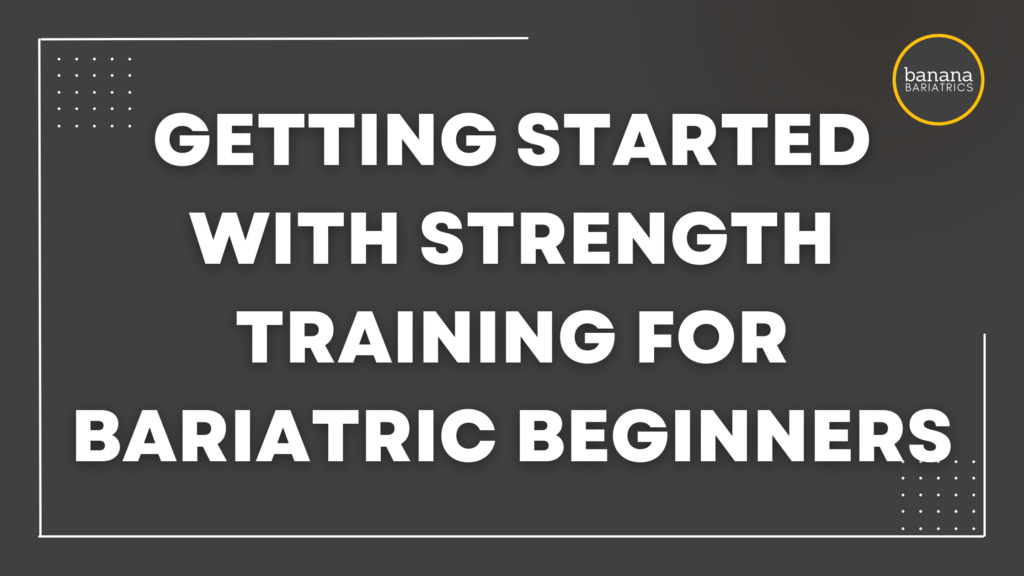
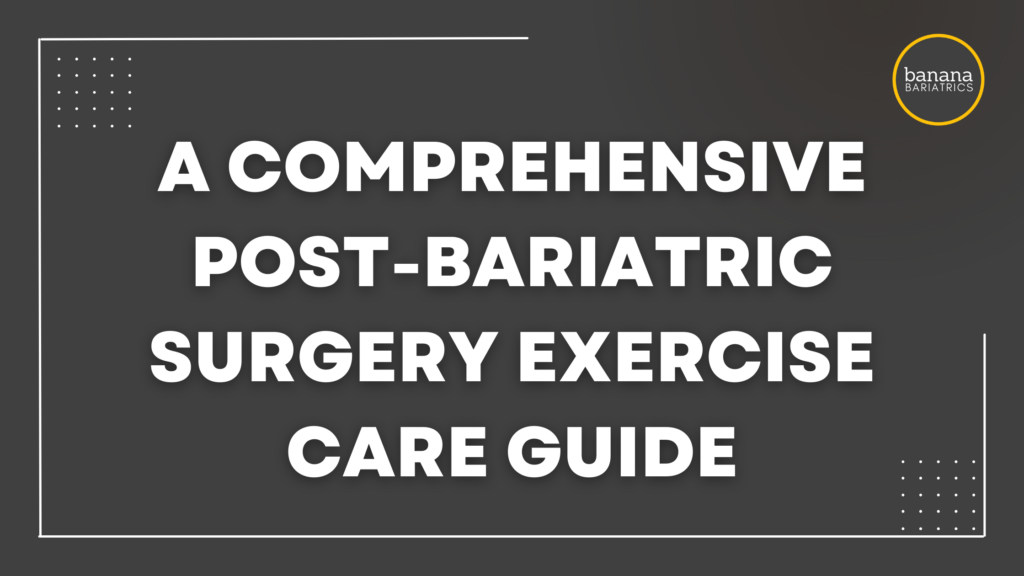
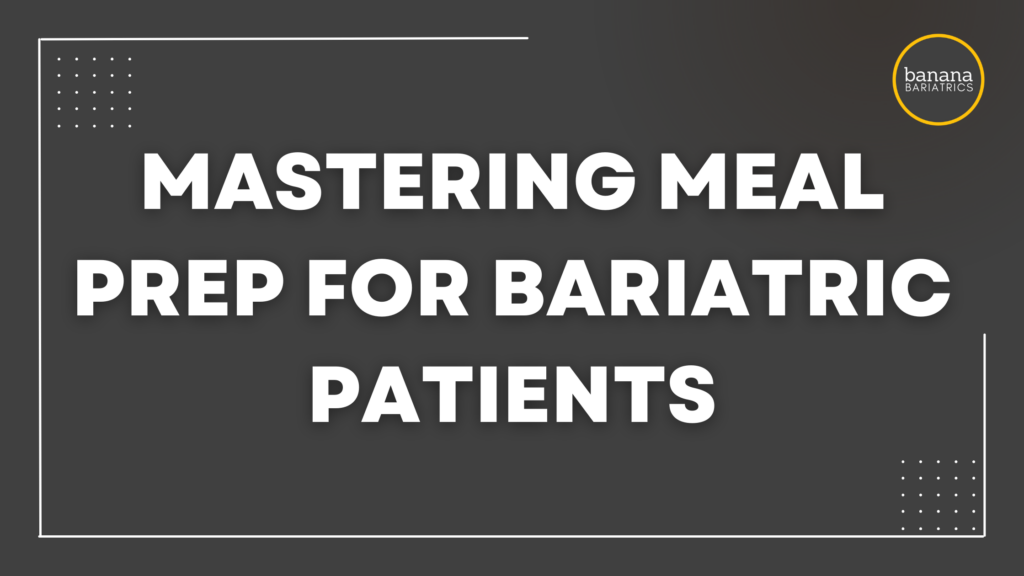

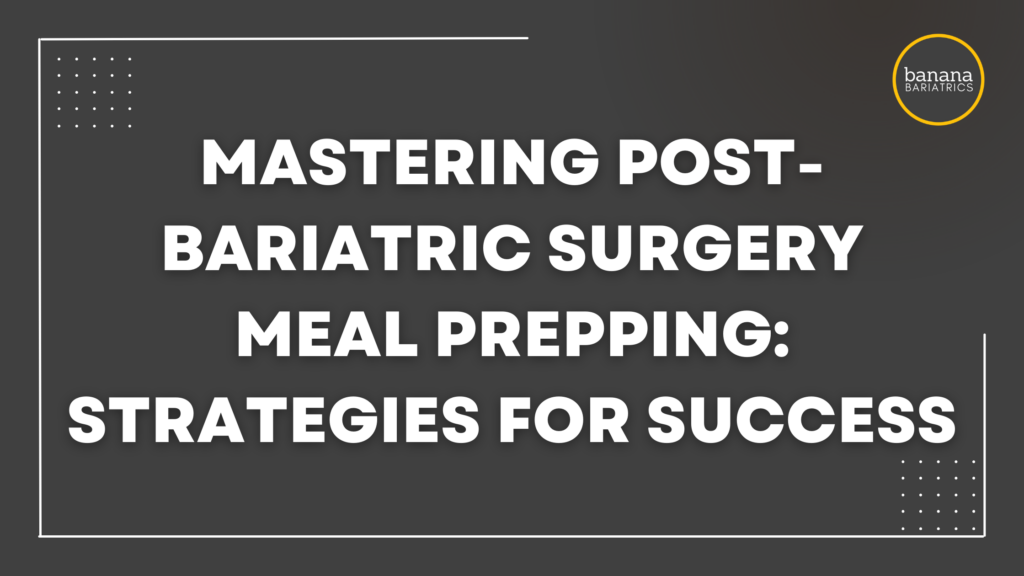
Responses